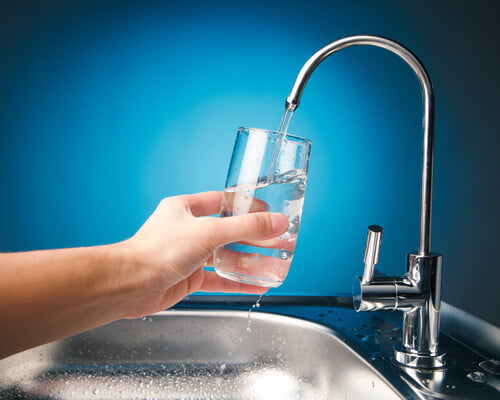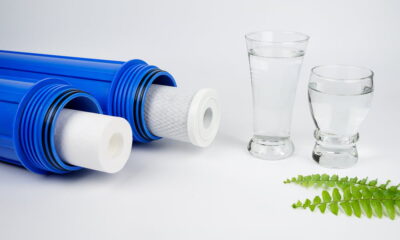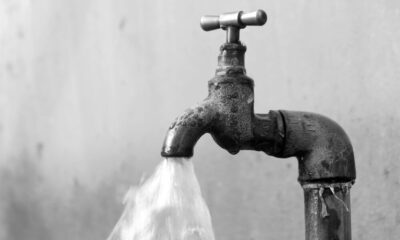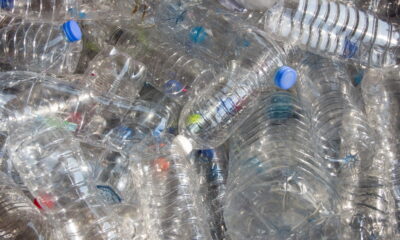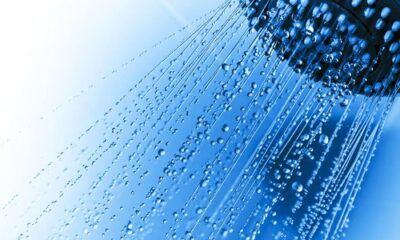Water is an indispensable resource needed to sustain our lives as humans. You can survive without food for a while, however, if you don’t have access to drinkable water, you will be dead within days. Hence, the importance of water cannot be overemphasized.
A lot of people may not know this; however, you are contributing your quota to saving the environment when you drink filtered water purified by making use of a water filter. This is because filtering water helps save water, and the amount of plastic bottle that would have been disposed which causes pollution of the environment especially when not properly done becomes drastically reduced.
Besides, filtering water helps with ensuring that you conserve water and avoid wasting it. It is no news that water can be reused again through the use of a water filtration system. The FDA posits that Americans spend as much as a whopping $4 billion annually to purchase bottled water. This amount of money is staggering considering the fact that these bottles are also a source of environmental pollution. Simply recycling your water through filtration is far more cost effective.
Filtration process
Generally speaking, there are only two techniques involved in the water filtration process. These two techniques is the physical and chemical filtration. The physical filtration is the removal of the solid waste contaminants from the water while the chemical filtration involves the removal of chemical contaminants. However, the process of water filtration can be divided into the three stages below.
Filtration
The first process basically requires the separation of the solid waste from the liquid remnant. This is done by letting the water that is to be filtered pass through a medium like a filter membrane that will be able to let the fluid pass through it and retain the solid particles. Finer solid particles as well as some compounds are not removable by this stage, hence, a second stage is required.
Separation
This is like the filtration stage but this time around, it is done in such a way that the solid particles were not taken off during the initial stage will be removed this time around. It also has to do with the isolation of compound that are contaminants from the water. Mechanical devices such as cyclones, centrifuges are often used to achieve this. In the event that the particles are a little big, coalesces are used for effective separation of particles.
Purification
The last stage in water filtration is the purification stage. This stage does not concern itself with the removal of solid wastes because the filtration and separation stages have taken care of that. This stage ensures that contaminants that are not solid enough to be removed by the filtration and separation stages. This is done through a series of pre-filters to remove micro contaminants as well as fine contaminants. The particular focus of this stage is to ensure that the water is free of any contaminant no matter how little to make the water safe for use.
Types of water filters
In the event that you have chosen to go for filtration of your water, below are some types of water filters that you can consider.
Absorption based- carbon activated
These type of water filters are often carbon activated. Carbon has the capacity to absorb a lot of particles. Hence, these filters are based on the ability of carbon to absorb contaminants. These types of filters will eventually require that you change the filter which is packed with carbon at some point. This is because the ability of carbon to absorb contaminants is limited.
At some point, the molecules will become too much for the carbon filter to handle and the resultant effect of this is that the filtration will no longer be effective. Most pitcher filter systems, faucet and fridges depend on this filtration system.
Ion exchange
These types of filters are very suitable when it comes to the removal of water “hardness”. Hard water refers to the water that won’t form foam with soaps as a result of the presence of a chemical compound in the water. The work by first splitting the atoms of the contaminants in order to make them become electrically charged (ions). These irons are absorbed by these filters and ions that are not harmful to the water are released into the water.
Reverse Osmosis
This involves the removal of fine contaminants from water by forcing them through a membrane. A fine filter is often employed to put pressure on the fine contaminants such that the water passes through the membrane while the contaminants stays on the filter. One of the most important facts about reverse osmosis is that the filter (semi-permeable membrane) is selective in allowing what goes through it which of course is water and retains the unwanted contaminants to ensure that the water becomes clean and safe for use again.
Distillation
The last but not the least type of filtration that will be discussed are the water filters based on distillation. Although boiling water is a good way to purify water due to its ability to terminate a whole lot of microbes, it is limited due to is inability to eliminate chemicals from the water. Hence, when it comes to removing chemical contaminants, distillation comes in handy.
This is done by capturing the steam that is produced while boiling the water. This steam is free of chemicals and can be cooled for use again.
Benefits of filtering water
There are a lot of benefits of filtering water, some of them are discussed below:
Conservation- A key benefit when water is filtered is that the water is stored for future use. This ensures that water is not wasted. Water is an important resource that is very vital to life sustenance. It is supposed to be treated with the respect it deserves and filtering water in order to use it again is very core to this.
Safe for drink- Filtered water is safe for drinking as the debris and dirt that had contaminated the water initially will be removed and the water will be made safe again for drinking.
Cheap source of water- You will be saving a lot of money by filtering your water because the bills that could have been incurred as a result of having to get water from another source again. Hence, filtering water bodes well for your pocket too.
Environment friendly- Unlike the use of bottled water, filtering your used water to make them usable again is not just beneficial to your pocket, it is also beneficial to the environment. This is because you will not need to buy bottle waters who disposal is a source of pollution to the environment. Hence, filter your water and you get to save your money and save your world at the same time.
In Conclusion: The Bottom Line
There is no doubt that water filtration is safe, cost effective, and also beneficial to the environment. Hence, begin to enjoy the benefits of having a water filtration system today. The benefits are too good to be overlooked. You probably thought it was a complicated thing before, but as you can see, filtration is not a complicated thing at all. Go for a filtration system that best suits your need.


 Environment12 months ago
Environment12 months agoAre Polymer Banknotes: an Eco-Friendly Trend or a Groundswell?

 Features11 months ago
Features11 months agoEco-Friendly Cryptocurrencies: Sustainable Investment Choices

 Features12 months ago
Features12 months agoEco-Friendly Crypto Traders Must Find the Right Exchange

 Energy11 months ago
Energy11 months agoThe Growing Role of Solar Panels in Ireland’s Energy Future
